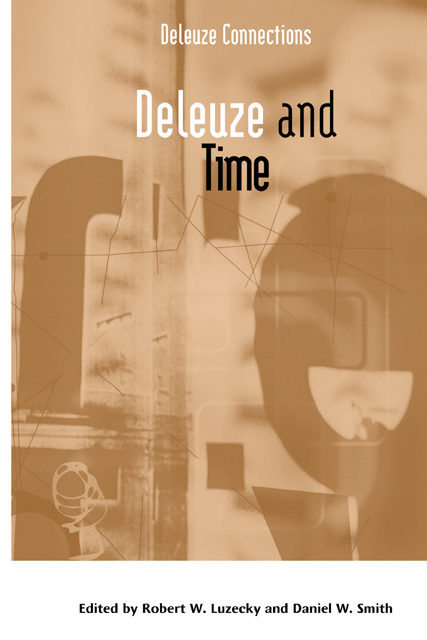11 - Gilles Deleuze, A Man Out of Time
Published online by Cambridge University Press: 13 April 2023
Summary
I’d like to tell you, [but] we won’t have time; we never have enough time.
I don’t know, I’ll never get finished if this continues. (Deleuze)
Of all of Gilles Deleuze’s weekly activities, teaching his seminar ranks among the most important given the considerable preparation and energy, both physical and mental, that he devoted to each session. However, a recurring theme revealed by the session recordings is the challenges to class time and duration faced by Deleuze, who was acutely aware of the temporal limitations for a full development of seminar topics. Although Deleuze attempted to maintain focus, and, dare I say, control, in order to complete adequately the segment under consideration according to his demanding standards, time within his seminar teaching was decidedly ‘out of joint’. Furthermore, besides such time constraints, Deleuze faced an even greater challenge, one that was self-imposed, in terms both of the conditions in which he taught his seminar and of the methods for encompassing the concepts that he wished to impart to his students. From this perspective, he was ‘out of time’ not simply due to temporal limitations but, more importantly, due to the difficulty of synchronising his immense grasp of the material with the participants’ possibilities for understanding.
I propose to examine the time of Deleuze’s seminar in light of these temporal and epistemological disjunctions by considering the obstacles that Deleuze faced and the many tactics that he developed to unfold successive facets of his complex thought, thereby clarifying Deleuze’s distinct relationship with the time of the seminar. I argue that, despite the many challenges, his goal was to practise a pedagogy of ‘Deleuze-time’, a deliberately focused creative unfolding of concepts relying on the participants’ active attention and participation. I also consider how space in the seminar rooms was linked to the temporal challenges of these weekly encounters. For while the exchanges between Deleuze and the participants offered openings for potential creation, such encounters were menaced in terms of limitations to actual duration as well as compression of space upon time.
Through access to the seminar recordings and transcripts from 1979 to 1987,4 I consider the numerous ways in which time and duration played fundamental roles in Deleuze’s articulation of his ongoing research within the pedagogical framework.
- Type
- Chapter
- Information
- Deleuze and Time , pp. 234 - 257Publisher: Edinburgh University PressFirst published in: 2023

